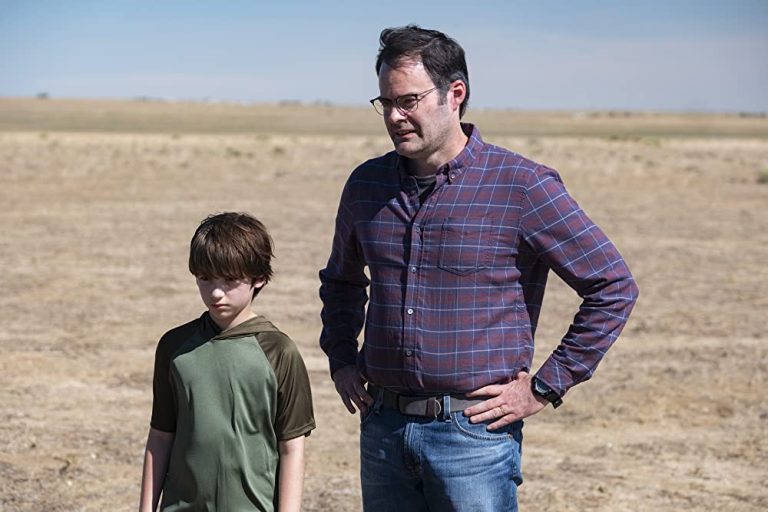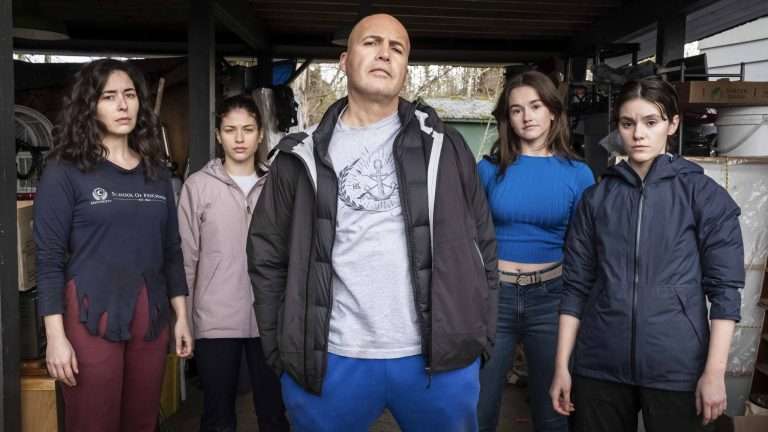From “I liked my old school” to “I think I’ll manage it,” Chihiro grew up.
So did all of us, isn’t it? The hesitant footsteps that had once trembled on touching the waters beneath the steps of the ‘Spirited’ Bathhouse were confidently surprised to find the lush green land they had bid farewell to on their way back home. That, in my opinion, is Growth. But what is Home? This becomes a poignant question to ask at this point. Is Home the one Chihiro left while entering the Spirited World, or is it the one she leaves while returning to her parents? In either of the two cases, ‘Home’ is nothing but a feeling; it is fleeting, and the harsh truth is that neither Chihiro nor we could catch it no matter how hard we tried. The moment we realize that, empathize with our vagabond-like hearts, and understand that it is nowhere that we actually belong, we know we have grown up.
All our lives we spend searching for that one place where we belong. The search ends for some, while others simply make do with the fact that life is like a stream of water; it flows, looks the same, but never is. The inch of water that has passed will never come back, just like a moment once passed never does. The stream we look at from a distance does not have the same water it had a moment before we set our glance. Are people any different? Once a person undergoes a specific experience, he/she/they are never the same.
Our chirpy protagonist, Chihiro, is, indeed, no exception. The film’s opening shot bears evidence of her refusal to accept Change. But ironically and funnily enough, Change eventually happens to be the only constant in her life. The person she was before she entered the tunnel and stepped into the world of Spirits is nothing close to the person that left; Chihiro: a name symbolizing a journey of growth; that of traveling from ‘Innocence’ to ‘Experience’ in the words of William Blake; an emblem signifying our perennial refusal to accept the New and yet succumbing to it anyway.
Hayao Miyazaki is an artiste when it comes to visualizing and painting in vibrant colors the meandering heart of a girl nearing her adolescence. While he pictures a world that appears Utopic, a closer look with a magnifying glass would lead us to the nuanced alleys of dark truth prevailing amid a fantastical world. Japan’s transitional phase between Tradition and Modernity gains a voice in the world of Spirited Away (2001). Miyazaki makes it a point to tuck in details of such a dichotomic phase in bits and pieces into the film, which floats to the foreground on various occasions; for instance, the artifacts inside the tunnel showcasing remnants of traditional life thriving at some point in Japan followed by the royal structure of the tower outside the tunnel that Chihiro’s father identifies to be a Theme Park in ruins. What is the need for a Theme Park fashioned in a traditional architectural design in the first place? Nothing but a need to hold on to the Past, a Past that is fleeting, just like the feeling of Home.
In Miyazaki’s vision, modernity is an Express Train so fast that even the Theme Parks appear to be a thing of the Past. Modernity is fast, daunting, and approaching with such an intense thunderbolt of lightning speed that the Past seems to be traversing into oblivion a little more with every passing minute. At this tumultuous juncture, what could be a better metaphor for the transitional phase of Japan than the transitional bewilderment undergone by Chihiro, the film’s female protagonist? Miyazaki, quite arguably, is no different from the series of film scholars and critics who pose women as the underlining marker of the conditions of a Nation State.
With the women, one gets a clear picture of how far the Nation’s Modernity is complete. Keeping aside the critical arguments on complete and incomplete Modernity, what is crucial in our context is how Chihiro becomes the living, breathing example of the dichotomy not only as she is approaching her teenage but also of how she is perplexed between Tradition (standing for the ‘Spirited World’) and the Modern (standing for the Human World).
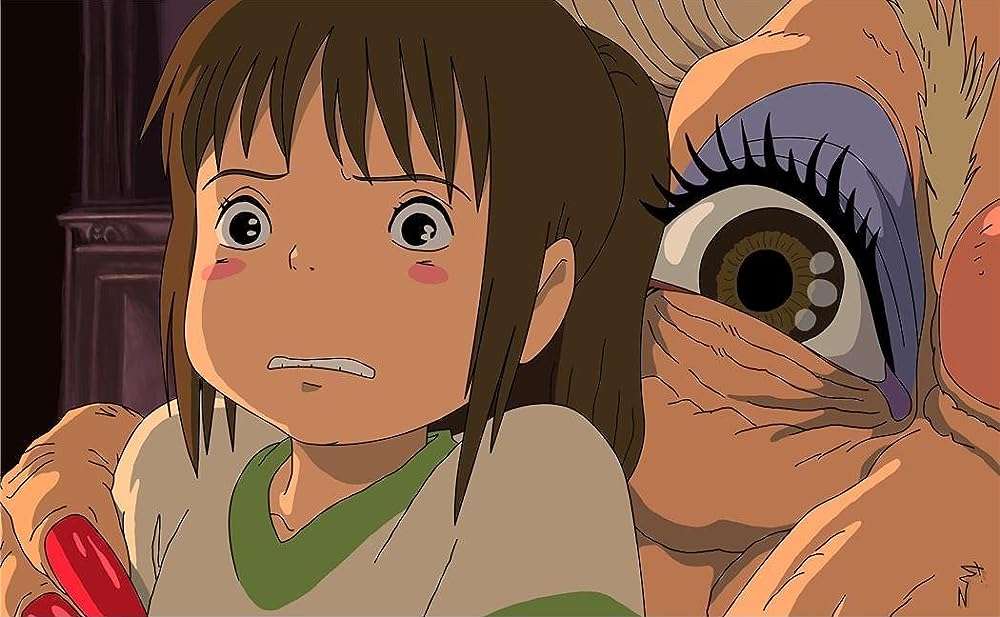
As the family walks past the lush green fields under Chihiro’s father’s persuasion and enters the World of Spirits, they seem to have reached the gateway of Tradition, a world that believes in “eight million Gods” where the Modern (in the form of her parents) intrude and try to inflict damage. Chihiro, who does not give in to the urge to destroy Tradition, is left all alone in that world. Her world is shaken when she finds that the lush green fields her parents and she had crossed to reach there have been converted into a vast water body, so huge that the Human World is entirely invisible. What is that water body? Lethe, perhaps, the one separating birth and death; in our case, separating the dead world of Tradition from the dynamic and evolving world of the Modern.
On being left alone in an unknown world, Chihiro has no other way but to learn how to make her way through it. The World of the Spirits, somehow, feels like a complete reversal of the Human World in every aspect; the most poignant being the absolute intolerance of humans. Remarks like “She will stink the whole place” and “You reek of humans” are considered ‘normal’ while eating a dried lizard is regarded as a lavish treat. It is a world where animals and Spirits (shaped like humans) co-exist with an equal share of importance, signifying a prehistoric world where humans and animals coexist in absolute harmony.
The reversal, further, could also be framed in a way where it is the same humans who are known to discriminate and look down upon weaker and lower rungs of society are the ones that are shunned like pests. It almost seems like revenge. Our young protagonist, who has only lately been exposed to life’s hurly-burly, finds it highly hostile and is often seen breaking down. Quite right, too, for growing mostly feels like breaking out of the shell of dormancy and letting the rays of harsh reality prick the immature eyes. Just like a newborn cries its way into the world, Chihiro sobs her way into a hostile world of Change; a world vehemently compelling her to grow up.
The reversal of the Human World could also signify a moral reversal that a teenager comes to terms with growing up. It is a tough time to realize that parents are, in fact, no superhuman or God-like entities. Instead, they are only mere mortals who could be as faulty as anybody could possibly be. It is a time of realization or an epiphany that life isn’t all about good, bad, or ugly. We are all imperfect beings struggling our way through these absolutes. The epiphany seems too hard to handle, but it eventually does get better. So does Chihiro.
Chihiro’s experience at the Bathhouse reminds me of my teenage years, a time when I suffered and grew up the most—in fact, the entire time she had been talking about her old school and made faces on crossing the new one made me remember my High School days of shifting to a new school. Thirteen years isn’t a period that could be easily erased from my memory, but I somehow believed that the new school was, in fact, better for me. I entered my class expecting welcoming faces, only to get into a fight for apparently sitting on someone else’s seat. I was a new girl. What would I have done anyway? I was devastated by such a start. Nobody spoke to me.
Chihiro’s tears rolling down her cheeks while stuffing the rice cakes into her mouth is so significantly reminiscent of my recess break when I ate my lunch alone for the first time in 13 years. I had tears in my eyes and apprehension in my heart. Where have I come from? Is this at all my place? All I wanted was to belong. But did I even belong to my earlier school? My previous school friends thought I belonged to the new school and vice versa. Funny, isn’t it? The hostility of my surroundings, like that of Chihiro, did compel me to grow up. “I am not a loser,” I said to myself. And then on began my struggle to make my way through the rough tracks of being too old to throw tantrums like a child and too young to accept Change like a mature adult.
But, but, but, in the end, you always make a friend!
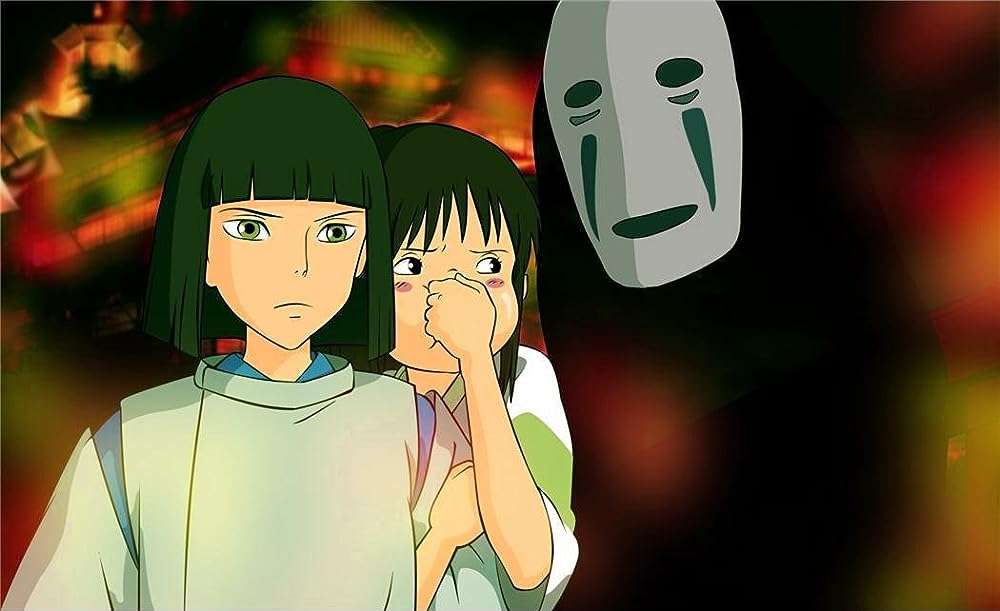
Surprising as it might seem, Chihiro got Haku by her side, and eventually, she ended up making a mark of friendship in the entire Spirited World. Everybody loved her and accepted her owing to her eventual will and success at learning to accept Change. She first goes up to Kamaji, the boiler man, and ends up indirectly impressing him with her first act of accepting Change, carrying a heavy stone all the way and throwing it into the fire meant for heating the water. He refers her to Lin, who initially expresses disgust but eventually ends up being her closest accomplice. She even rows her to the station when the latter is off to meet Zeneba and even apologizes to her for being cranky previously.
Chihiro’s growth and acceptance of the New came in the form of her readjustment to the changed environment. Doing so eventually brought her real personality to fruition, just like a caterpillar becoming a butterfly. This new Chihiro is an empath, a caring individual who keeps ‘others’ (even though she does not belong to that world) ahead of her needs. Her gesture to feed the River Spirit’s magical boon, which she had been saving for her parents, to the wounded Haku (who had become a dragon) and to No-Face speaks tons of how well she had imbibed the spirit of growing up. The boon might have healed her parents from Yubaba’s curse. Who knows? But Life, as they say, has its own ways. It was in Life’s syllabus to teach her how to grow above and beyond herself, and she, like all of us, had no other way but to oblige.
What could be a remarkable observation is how Chihiro, quite effortlessly, came to look at herself as one of them and that she gained a friend at every point of her life in the Spirited World. She was even considered a friend by the tiny soot gremlins or bunnies working under Kamaji, who cared enough to safely keep Chihiro’s belongings in their hole. Never to miss out, Yubaba’s child and her bird become the two constants in her journey to the extent that the former even testifies for her release. From being the girl who had never tried her hands at household chores and had been struggling even to wipe a floor, Chihiro became the girl who came to be applauded and protected even by Yubaba when she helped clean the large tank and free the River Spirit.
Every small nook and corner of the Spirited World smells of her kindness and friendship. Considering Chihiro’s inexperience and newness in the Spirited World, the ease with which she gathers small acts and gestures of affection from otherwise odd creatures like the radish spirit, No-Face, and even the lantern hanging at Zeneba’s door speaks tons about how life has its own way of making us taste both hostility and love from the same world. Peculiar, isn’t it? Peculiarly beautiful, as I would say. Just as weird as me making a friend after shedding a lonely tear during recess. Yes, I got a friend too. The resemblance of my experiences with Chihiro is so uncanny, and I believe therein lies Miyazaki’s genius as an artiste. Who could ever have thought that a protagonist penned down sitting on a chair in Japan in the early 2000s could resonate with a girl sitting in Bengal in her 20s?
Yes, I made a friend too. She showed me around the whole school, and I stuck around her for everything I needed. Eventually, I made many friends and gained a best friend. I am not in touch with her anymore but ah! Memories! I have the fondest memories of being with her in that new school, that new world. With my share of good and bad experiences, I made my ship sail through the new world, and then finally, a day came when all of us had to leave. This return, mind you, wasn’t as difficult as adjusting to the environment had been. Or maybe I had learned to accept Change gracefully; who knows?
Today, I believe that the jump at the age of 16 was, perhaps, necessary as it made my transitional phases in adult life smoother. I still travel to places, have to readjust, do chores that I never had to do at home, and make a family out of strangers, but it isn’t so bad. I’m sure Chihiro’s new school wouldn’t be that bad too! Since she survived the new world, she can survive anything, just as I believe that if I could survive my new world, I can handle many new worlds that would come my way.
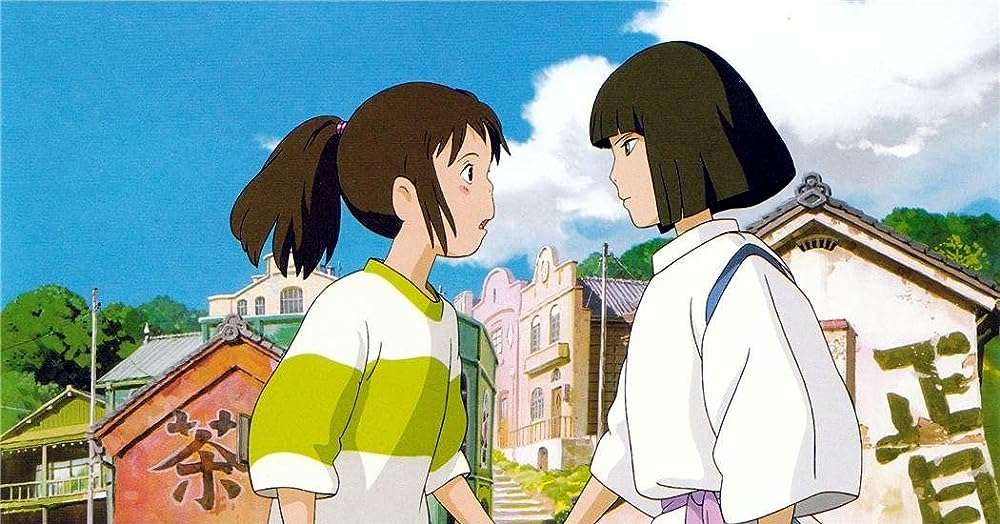
A large part of transitional phases in life is also about crises regarding Identity. Who are we? Are we the person we were while stepping into this phase, or are we different? This, again, takes us back to the quintessential dichotomy about where we belong; Home, to be more specific. Who are we, and where do we belong? Where is our Home? It is easy to forget who we are at such an ambiguous juncture. The definition of ourselves that we keep reiterating in our heads gradually grows into a mushy mess of darkness. This crisis comes to the forefront the first time Chihiro identifies herself as ‘Sen’ as she calls out to her parents in the pig shed.
Yubaba, who is in charge of the Spirited World, had given her a new name that she could respond to during her stay in Yubaba’s world. This reminds me of how so many of my friends in my childhood knew me to be a certain person and how I turned out to be completely different in my adulthood. The transitional teenage years, however, had been utterly confusing where I found it so difficult to decide whether I should retain the childhood values and myths or I should look at my friends around and indulge in the joy of growing up and doing grown-up things. I happened to find myself stuck between being too old to stick to the earlier values and too young to do all that my friends did. This crisis has not fully receded; I believe it doesn’t recede entirely from our lives. ‘Who am I?’ continues to prick us till our last breath.
What is interesting here, though, is how the word ‘Sen’ actually is a different pronunciation of the word ‘Chi,’ which is again the starting word of the name ‘Chihiro,’ meaning ‘thousand’ or ‘the one that asks a thousand questions.’ This leads us to a realization. In the end, it is all about the ‘essence.’ “What’s in the Name?” after all? Whether Chihiro or Sen, the protagonist succeeded in the test of never forgetting her essence. No-Face, therefore, is a symbol of all those who forgot their essence and lost their identities in the Spirited World. They have no other way but to stand by the shore, waiting for an identity to imbibe in order to thrive. This explains No-Face’s incessant swallowing of food and people. What if this gives a face to No-Face? What if he gets a voice? However, unfortunately, mirroring others can only take us so far. No-Face, thus, lives on with no face.
The name, however, in Spirited Away (2001) does somewhat function as the ‘essence.’ As the protagonist addresses herself as ‘Sen,’ it is the card of an old friend that reminds her of her real name. Sometimes, it does require our loved ones to remind us who we truly are. Once we hold on to it and are ready to learn, unlearn, and relearn, we are sure to grow as a person. Chihiro has spent just enough time in the new world to hold on to her essence while learning to accept Change, unlearning her childhood dependency, and finally relearning to segregate what is her own and eventually hold on to it. We are sure of it from how well she could grasp the fact that none of the pigs are her parents in the end.
After Chihiro incredibly sails through the tough times and makes her way to return to the Human World, she is not allowed to look back. She floats back to the same shore where she had started this journey with her parents. With her parents utterly unaware of her growth, she hits a moment of epiphany; perhaps life is all about those incidents, experiences, and people who come to teach you something, and then they drift apart, perhaps like a meteor or an asteroid. Who knows? You are not allowed to look back, for there is no trace of their existence anymore lest your memory of them. You run back to the tracks of Life, being the sole witness to your coming of age and personal growth; in other words, your new ‘essence’ or your new ‘identity.’
But again,
“In the end, the whole life becomes an act of letting go…”
Perhaps the greatest epiphany lies in the fact that we can truly hold on to nothing we gained in the Human World, not even our refurbished identities. Everything we achieved here, we let go of and are inadvertently engulfed into the World of Spirits. Chihiro got a glimpse of it at the age of 10. Did you?

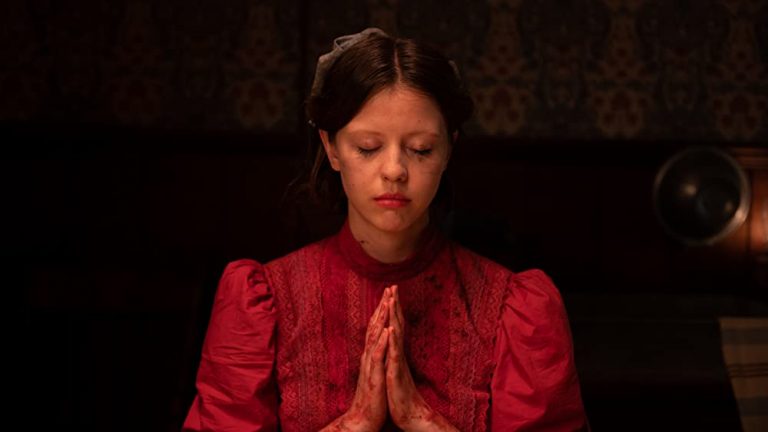
![The BFG [2016]: Spielberg’s Territory but not Spielberg Enough](https://79468c92.delivery.rocketcdn.me/wp-content/uploads/2016/07/The-BFG-4-featured.jpg)


